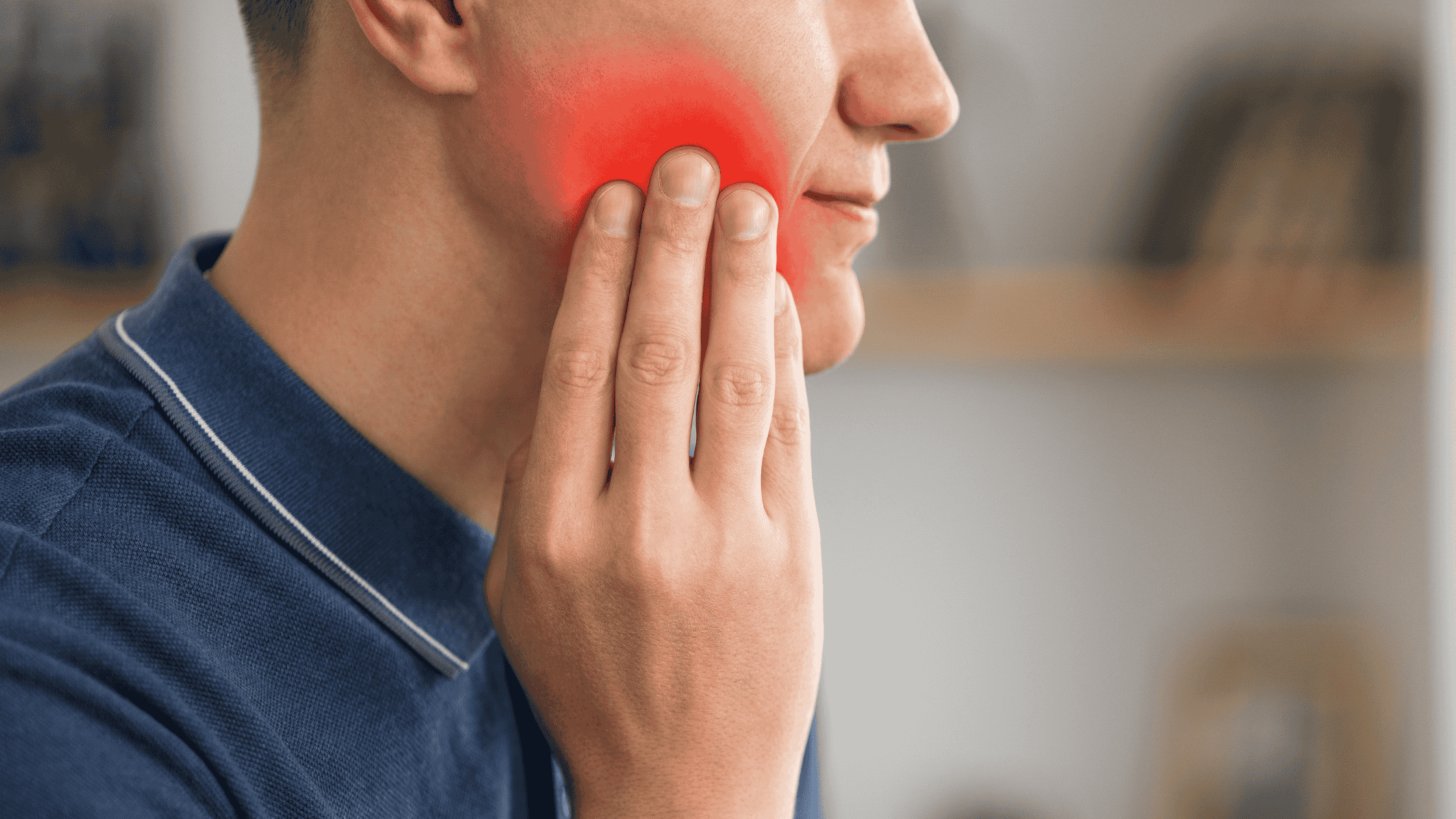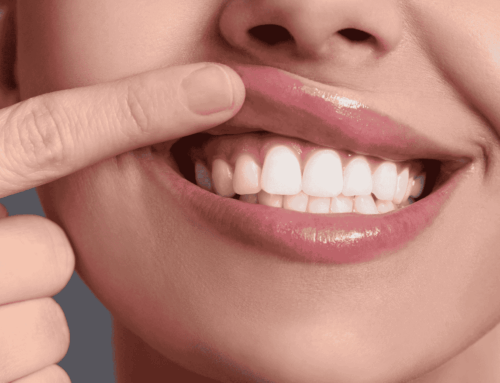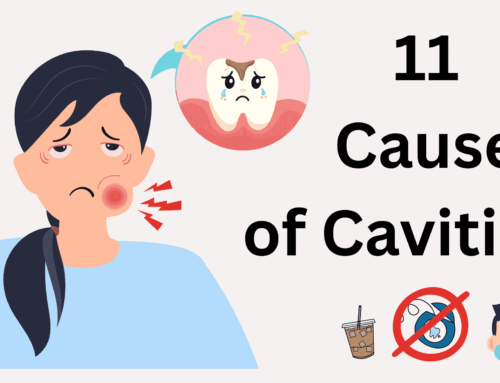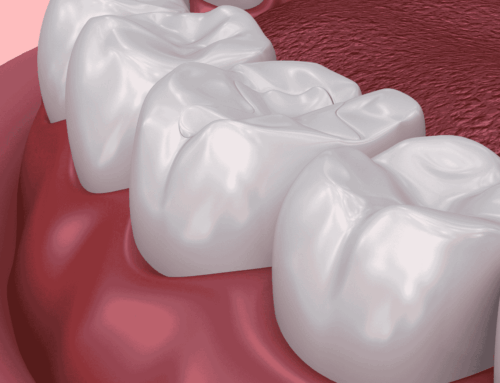By Dr. Nihal Nayak | General Dentist, BBiomedSc (Aus), BBiomedSc (Hons), BDentHSc (Aus), MDent (Aus)
Toothaches are more than just an inconvenience, they’re often your body’s way of telling you something’s wrong. And while it’s easy to assume it’s just a cavity, the truth is, there are several different reasons your tooth might be hurting. Some are simple and easy to treat. Others could point to something more serious happening beneath the surface.
In this guide, we’ll break down nine of the most common causes of toothache, what symptoms to watch for, and when it’s time to see a dentist. Whether you’re dealing with pain right now or just want to stay ahead of dental issues, this information can help you make informed decisions about your oral health.
1. Cavities (Tooth Decay)
Let’s start with one of the most common, and most preventable causes of toothaches. Cavities happen when bacteria in your mouth produce acids that eat away at the protective enamel on your teeth. Over time, this erosion creates small holes, or “cavities,” that can expose the inner layers of your tooth.
As experienced dental professionals in Doncaster, we know that at first, you might not feel much at all. Many patients don’t notice a cavity until the pain sets in, often triggered by something hot, cold, or sweet. As the decay reaches deeper, it can irritate the nerve, causing sensitivity or even a persistent, throbbing pain.
If a cavity is caught early, treatment is simple, usually just a small filling. But if it’s left untreated, it can progress into something more serious, like an infection or the need for a root canal. That’s why we always emphasize the importance of regular checkups, they allow us to catch and treat issues before they become more complex and uncomfortable.
2. Gum Disease (Gingivitis & Periodontitis)
Gum disease is one of the most common causes of oral discomfort, especially when it’s not treated early. It usually starts as gingivitis, which shows up as red, swollen, or bleeding gums. If it’s left untreated, it can progress into periodontitis—a more serious form that affects the bone supporting your teeth.
You might notice soreness near your teeth, pain when chewing, bad breath, or gums pulling away, these are all signs of gum disease. The earlier we catch it, the easier it is to treat. With regular cleanings and good oral care at home, we can often stop it in its tracks.
But if it’s left too long, it can lead to tooth loss and more advanced treatments like deep cleanings or even surgery. So if your gums don’t feel right, don’t wait, your smile depends on it.
3. Cracked or Broken Tooth
A cracked or broken tooth can happen suddenly, like biting something hard, or develop over time from grinding or weakened enamel. Even small cracks can cause sharp pain or sensitivity, especially if they reach the inner layers of the tooth. Some are easy to spot, but others require dental imaging to detect.
Cracks don’t heal on their own and can worsen if left untreated. Depending on the damage, we may recommend bonding, a crown, or in more serious cases, a root canal. The sooner we catch it, the easier it is to treat, so don’t ignore it if something feels off.
4. Tooth Abscess (Infection)
A tooth abscess isn’t just painful, it’s a sign of a serious infection. It usually happens when bacteria reach the tooth’s nerve, often due to untreated decay, a crack, or advanced gum disease. The pain can be intense and throbbing, and you might also notice swelling, a bad taste, or even a fever.
An abscess won’t heal on its own, so it’s important to seek care right away. We typically treat it with antibiotics and may need to perform a root canal or extraction to remove the infection. If left untreated, it can spread and lead to serious health complications.
The sooner we treat it, the better your outcome, and your comfort.
5. Teeth Grinding (Bruxism)
Grinding your teeth, especially at night, might not seem like a big deal, but over time it can wear down enamel, strain your jaw, and cause serious discomfort. In fact, many people don’t realize they’re doing it until they notice jaw pain, headaches, or sensitive, worn-down teeth.
The good news is, we can help prevent further damage. A custom night guard protects your teeth while you sleep, and if stress is a factor, relaxation techniques can make a big difference.
The key is catching it early before it leads to long-term pain or damage.
6. Sinus Infection
Not all tooth pain starts in the teeth, sometimes it’s actually your sinuses. Sinus infections can cause pressure in the upper jaw, especially around the back molars, leading to a dull, achy feeling in several teeth. You might also notice nasal congestion, facial pressure, or post-nasal drip.
The pain usually goes away once the sinus issue clears up. But if it lingers or affects just one tooth, it’s a good idea to rule out a dental problem. If you’re unsure, we’re here to help figure out what’s causing the discomfort and get you the right care.
7. Impacted Wisdom Teeth
Wisdom teeth are the last to come in, and often the first to cause trouble. When they don’t have enough space to grow in properly, they can become impacted. That means they’re stuck under the gums or pushing against neighboring teeth, which can lead to pressure, swelling, and pain in the back of the mouth.
This kind of discomfort can build slowly or come on suddenly. Some patients feel soreness in the jaw or gums, while others might notice headaches or difficulty opening their mouth fully. Infections around the impacted area aren’t uncommon either, especially if bacteria get trapped under the gum tissue.
If your wisdom teeth are causing pain, it’s a good idea to have them evaluated. In our practice, we use digital imaging to assess their position and decide whether removal is necessary. Not everyone needs their wisdom teeth taken out, but when they start interfering with your comfort or oral health, it’s often the safest next step.
8. Recent Dental Work
It might seem surprising, but sometimes tooth pain shows up after a visit to the dentist. Mild sensitivity following a filling, crown, or deep cleaning is completely normal, but in some cases, the discomfort lingers longer than expected or starts to feel more intense. When that happens, it’s worth taking a closer look.
This type of pain can come from several sources. Maybe your bite feels slightly off after a new filling or crown. Or the nerves inside the tooth are reacting to the treatment itself, especially if the procedure was close to the root. In rare cases, pain might signal that a deeper issue, like an infection or cracked tooth, wasn’t fully resolved.
While some sensitivity fades on its own, ongoing pain isn’t something to ignore. We always encourage patients to follow up if something doesn’t feel right after treatment. Adjustments are usually simple, and checking in early can prevent small problems from turning into bigger ones.
9. Tooth Sensitivity (Worn Enamel or Gum Recession)
If you’ve ever felt a quick jolt of pain from something cold or sweet, you’re not alone. Tooth sensitivity is common and often caused by worn enamel or receding gums, which expose the nerves underneath.
The discomfort usually comes in brief bursts, often triggered by temperature or certain foods. It can result from brushing too hard, grinding, or gum disease.
Fortunately, sensitivity can often be managed with special toothpaste, fluoride treatments, and a few changes to your routine. And if it keeps coming back, we’re here to help find the cause and keep your smile comfortable.
When to See a Dentist for a Toothache
Some toothaches come and go, but others are a sign that something more serious is going on. If your pain lasts more than a day or two, gets worse over time, or is paired with swelling, fever, or a bad taste in your mouth, you shouldn’t wait it out. These symptoms could point to an infection or a dental issue that needs professional attention.
Even if the discomfort feels minor, it’s still worth getting checked out. In our experience, what starts as a small ache can quickly escalate if it’s not treated early. And if you’ve had recent dental work or a history of sensitivity, a quick visit can help you avoid unnecessary complications.
At The Pines Dental Centre, we’re here to help you get to the root of your tooth pain and find real relief. Our team of experienced dentists takes the time to listen, assess, and guide you toward the right treatment, so you can feel better, faster. If you’re dealing with any kind of toothache, don’t wait. Call us today to schedule an appointment and get the care your smile deserves.
Author

Dr. Nihal Nayak
General Dentist – BBiomedSc (Aus), BBiomedSc (Hons), BDentHSc (Aus), MDent (Aus)
Dr. Nihal Nayak is a highly qualified general dentist with a strong academic foundation in biomedical and dental sciences.
Passionate about comprehensive patient care, he takes pride in creating a welcoming environment while delivering clinical excellence.
His goal is to empower patients with knowledge and confidence in every aspect of their dental health.






